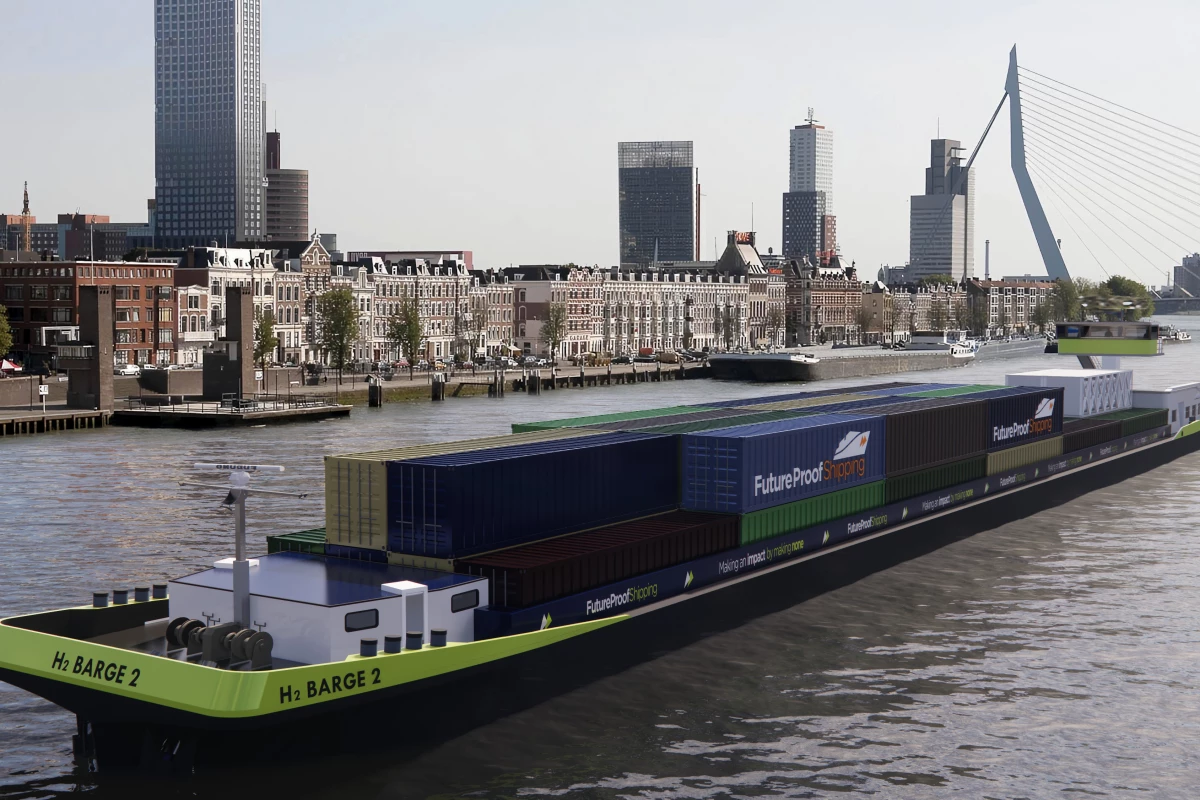Transporting goods by inland waterways can be a dirty business, but an EU-backed project is looking to clean up its act – launching a container vessel powered by green hydrogen on a major cargo route between the Netherlands and Germany.
Future Proof Shipping's first inland shipping container vessel powered by green hydrogen was introduced last year, a 110 x 11.45-m (360 x 37.5-ft) barge that had its combustion engine whipped out and replaced by electric motors, hydrogen tanks, a fuel-cell system and batteries. The H2 Barge 1 began operating between the Port of Rotterdam in the Netherlands and a BCTN inland terminal in Meerhout, Belgium, from June 2023.
The H2 Barge 2 project – from Future Proof Shipping, the EU's Flagships H2020 project and ZEM Ports NS – is another retrofit undertaken at the Holland Shipyard Group's Werkendam facility near Rotterdam, again replacing the diesel engines and fuel tanks with a green-hydrogen-powered propulsion system, this time using six 200-kW fuel cells and making 1.2 MW of power available to the motors.
"Inland waterways are important for freight transport in Europe, we are thrilled to see a high-power container vessel being converted to zero-emission," said Mirela Atanasiu, Executive Director ad interim of Clean Hydrogen Partnership. "The H2 Barge 2 will bring knowledge on how to retrofit vessels from diesel combustion to zero-emission alternatives, by using batteries in combination with green hydrogen in a fuel cell."
The new demonstrator vessel has capacity for 190 20-ft shipping containers, and will transport goods on the Rhine between Rotterdam and Duisburg in Germany, a major cargo route. The conversion from diesel to hydrogen is estimated to reduce CO2 emissions by 3,000 tonnes.
"We've been working hard for several years to get to this point," said Jyrki Mikkola, senior scientist at VTT and Flagships Project Coordinator. "Having the first demonstrator on the Rhine is truly a great achievement by Future Proof Shipping and the rest of the partners. The aim of the Flagships project is to take zero-emission waterborne transport to an entirely new level. Now we're one important step closer to reaching our goal."
A second hydrogen-powered Flagships demonstrator called the Zulu 06 is expected to launch in Paris later this year. Future Proof Shipping is aiming to build and operate a total of 10 zero-emission inland/short-sea vessels over the next five years.
Source: Future Proof Shipping




